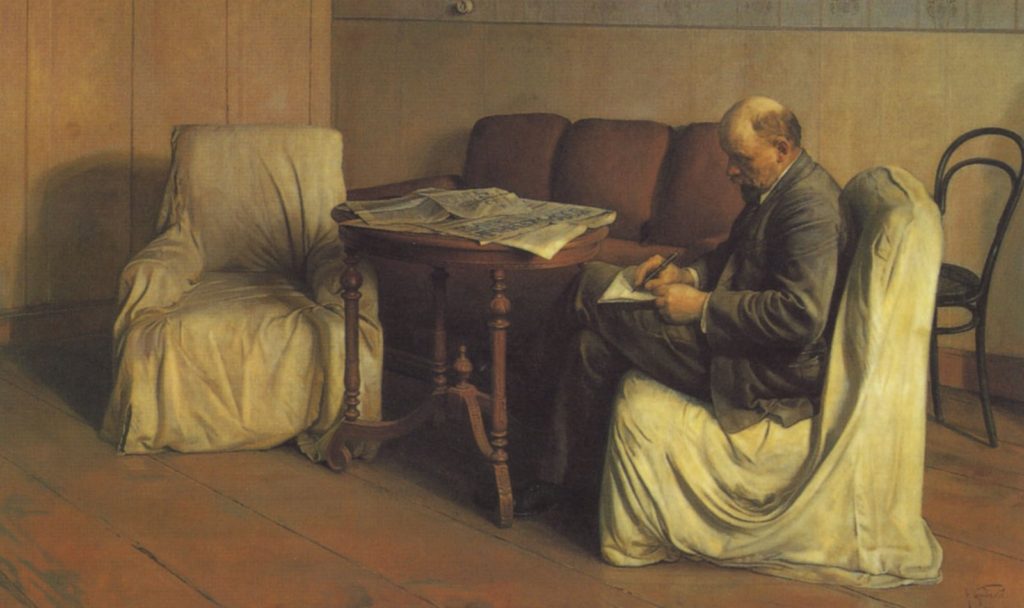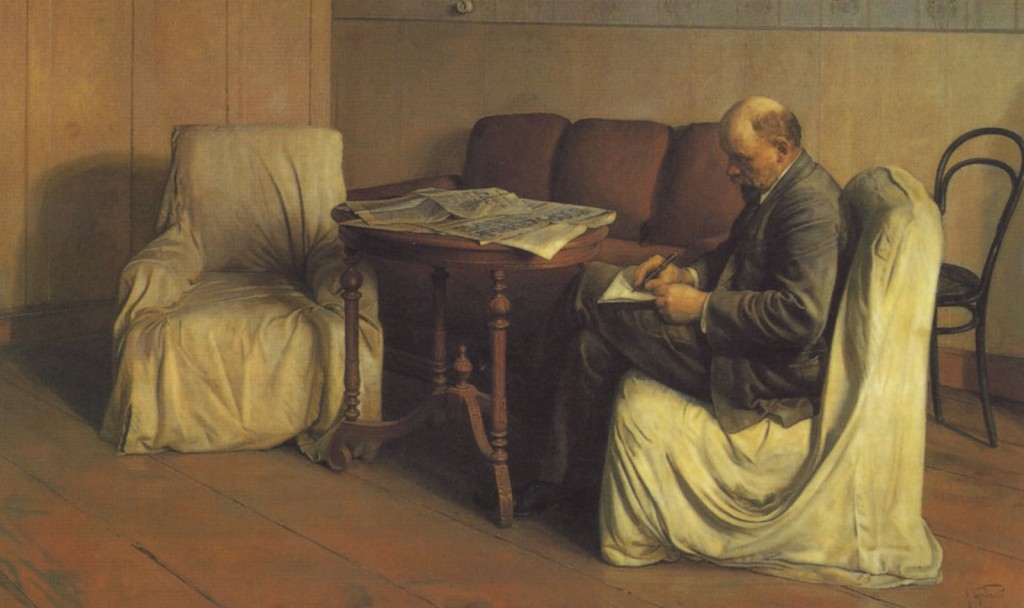
Meets Tuesdays from 5 - 7 p.m. in HSS Room G069
No prior knowledge assumed / all are welcome
Direct inquiries to platypusknoxville@gmail.com
II. Introduction to revolutionary Marxism
• required / + recommended reading
Marx and Engels readings pp. from Robert C. Tucker, ed., Marx-Engels Reader (Norton 2nd ed., 1978)
Recommended winter break preliminary readings:
+ Leszek Kolakowski, “The concept of the Left” (1968)
+ Richard Appignanesi and Oscar Zarate / A&Z, Introducing Lenin and the Russian Revolution / Lenin for Beginners (1977)
+ Sebastian Haffner, Failure of a Revolution: Germany 1918–19 (1968)
+ Tariq Ali and Phil Evans, Introducing Trotsky and Marxism / Trotsky for Beginners (1980)
+ James Joll, The Second International 1889–1914 (1966)
+ Edmund Wilson, To the Finland Station: A Study in the Writing and Acting of History (1940), Part II. Ch. (1–4,) 5–10, 12–16; Part III. Ch. 1–6
Film screenings: Winter 2020
Sundays at 7:00 p.m. in Hodges Library's Lindsay Young Auditorium
• January 19th: Fall of Eagles episodes: #5 "The Last Tsar" and #6 "Absolute Beginners" on the origins of the Bolsheviks
• January 26th: 37 Days Episode #3 "One Long Weekend" (uncut BBC version including the Socialists) on the start of WWI; and Fall of Eagles episode #12 "The Secret War" on WWI and the Russian Revolution
• February 2nd: Fall of Eagles episode #13 "End Game" on the German Revolution 1918-19; and Oliver Stone's Untold History of the United States Prequel Episode A. 1900-20, on imperialism, WWI and the Russian Revolution
• February 9th: Rosa Luxemburg film
Winter 2020
I. What is the Left? – What is Marxism? (ct'd.)
Week 8. What is Marxism? II. Revolution in 1848 | Jan. 6, 2020
• Karl Marx, Address to the Central Committee of the Communist League (1850), pp. 501–511 and Class struggle and mode of production (letter to Weydemeyer, 1852), pp. 218-220
• Friedrich Engels, The tactics of social democracy (Engels's 1895 introduction to Marx, The Class Struggles in France), pp. 556–573
• Marx, selections from The Class Struggles in France 1848–50 (1850), pp. 586–593
• Marx, selections from The 18th Brumaire of Louis Bonaparte (1852), pp. 594–617
Week 9. What is Marxism? III. Bonapartism | Jan. 13, 2020
+ Karl Korsch, "The Marxism of the First International" (1924)
• Marx, Inaugural address to the First International (1864), pp. 512–519
• Marx, selections from The Civil War in France (1871, including Engels's 1891 Introduction), pp. 618–652
+ Korsch, Introduction to Marx, Critique of the Gotha Programme (1922)
• Marx, Critique of the Gotha Programme, pp. 525–541
• Marx, Programme of the Parti Ouvrier (1880)
Week 10. What is Marxism? IV. Critique of political economy | Jan. 20, 2019
The fetish character of the commodity is not a fact of consciousness; rather it is dialectical, in the eminent sense that it produces consciousness. . . . [P]erfection of the commodity character in a Hegelian self-consciousness inaugurates the explosion of its phantasmagoria.
— Theodor W. Adorno, letter to Walter Benjamin, August 2, 1935
+ Commodity form chart of terms
+ Capitalist contradiction chart of terms
+ Organic composition of capital chart of terms
• Marx, selections from the Grundrisse (1857–61), pp. 222–226, 236–244, 247–250, 276–293 ME Reader pp. 276-281
• Marx, Capital Vol. I, Ch. 1 Sec. 4 "The fetishism of commodities" (1867), pp. 319–329
+ Being and becoming (freedom in transformation) / immanent dialectical critique chart of terms
Winter–Spring 2020
II. Introduction to revolutionary Marxism
Week 11. Revolutionary leadership | Jan. 28, 2020
• Rosa Luxemburg, “The Crisis of German Social Democracy” Part 1 (1915)
• J. P. Nettl, “The German Social Democratic Party 1890–1914 as a Political Model” (1965)
• Cliff Slaughter, “What is Revolutionary Leadership?” (1960)
Week 12. Reform or revolution? | Feb. 4, 2020
• Luxemburg, Reform or Revolution? (1900/08)
+ Eugene Debs, "Competition versus Cooperation" (1900)
Week 13. Lenin and the vanguard party | Feb. 11, 2020
• Spartacist League, Lenin and the Vanguard Party (1978)
+ Richard Appignanesi and Oscar Zarate / A&Z, Introducing Lenin and the Russian Revolution / Lenin for Beginners (1977)
Week 14. What is to be done? | Feb. 18, 2020
• V. I. Lenin, What is to be Done? (1902)
+ Richard Appignanesi and Oscar Zarate / A&Z, Introducing Lenin and the Russian Revolution / Lenin for Beginners (1977)
Week 15. Mass strike and social democracy | Feb. 25, 2020
• Luxemburg, The Mass Strike, the Political Party and the Trade Unions (1906)
+ Luxemburg, "Blanquism and Social Democracy" (1906)
Week 16. Permanent revolution | Mar. 3, 2020
• Leon Trotsky, Results and Prospects (1906)
+ Tariq Ali and Phil Evans, Introducing Trotsky and Marxism / Trotsky for Beginners (1980)
Week 17. State and revolution | Mar. 10, 2020
• Lenin, The State and Revolution (1917)
Week 18. Imperialism | Mar. 17, 2020
• Lenin, Imperialism, the Highest Stage of Capitalism (1916)
+ Lenin, Socialism and War Ch. 1 The principles of socialism and the War of 1914–15 (1915)
Week 19. Mar. 24, 2020 (spring break)
Week 20. Failure of the revolution | Mar. 31, 2020
• Luxemburg, “What does the Spartacus League Want?” (1918)
• Luxemburg, “On the Spartacus Programme” (1918)
+ Luxemburg, "German Bolshevism" (AKA "The Socialisation of Society") (1918)
+ Luxemburg, “The Russian Tragedy” (1918)
+ Luxemburg, “Order Reigns in Berlin” (1919)
+ Eugene Debs, “The Day of the People” (1919)
+ Sebastian Haffner, Failure of a Revolution: Germany 1918–19 (1968)
Week 21. Apr. 7, 2020 [Platypus international convention]
Week 22. Retreat after revolution | Apr. 14, 2020
• Lenin, “Left-Wing” Communism: An Infantile Disorder (1920)
+ Lenin, "Notes of a Publicist" (1922)
Week 23. Dialectic of reification | Apr. 21, 2020
• Lukács, “The Standpoint of the Proletariat” (Part III of “Reification and the Consciousness of the Proletariat,” 1923). Available in three sections from marxists.org: section 1 section 2 section 3
+ Being and becoming (freedom in transformation) / immanent dialectical critique chart of terms
+ Commodity form chart of terms
+ Capitalist contradiction chart of terms + Organic composition of capital chart of terms
+ Reification chart of terms
+ Lukács, “The phenomenon of reification” (Part I of “Reification and the consciousness of the proletariat,” History and Class Consciousness, 1923)
Week 24. Lessons of October | Apr. 28, 2020
• Trotsky, The Lessons of October (1924) [PDF]
• Trotsky, "Stalinism and Bolshevism" (1937)
Week 25. Trotskyism | May 5, 2020
+ Trotsky, "To build communist parties and an international anew" (1933)
+ Trotsky, "If America should go communist" (1934)
• Trotsky, The Death Agony of Capitalism and the Tasks of the Fourth International (1938)
+ Trotsky, "Trade unions in the epoch of imperialist decay" (1940)
+ Trotsky, Letter to James Cannon (September 12, 1939)
Week 26. The authoritarian state | May 12, 2020
• Friedrich Pollock, "State Capitalism: Its Possibilities and Limitations" (1941) (note 32 on USSR)
• Max Horkheimer, "The Authoritarian State" (1942)
+ Capitalist contradiction chart of terms
Week 27. On the concept of history | May 19, 2020
• epigraphs by Louis Menand (on Edmund Wilson) and Peter Preuss (on Nietzsche) on the modern concept of history
+ Charles Baudelaire, from Fusées [Rockets] (1867)
+ Bertolt Brecht, "To posterity" (1939)
+ Walter Benjamin, "To the planetarium" (from One-Way Street, 1928)
+ Benjamin, "Fire alarm" (from One-Way Street, 1928)
[JPG] [PDF]
+ Benjamin, "Experience and poverty" (1933)
+ Benjamin, Theologico-political fragment (1921/39?)
+ Benjamin on history chart of terms
• Benjamin, "On the Concept of History" (AKA "Theses on the Philosophy of History") (1940) [PDF]
• Benjamin, Paralipomena to "On the Concept of History" (1940)
+ Benjamin, Arcades Project Convolute N, "On the theory of knowledge, theory of progress" (see especially p. 471 [N8,1] on Horkheimer on unredeemablility of past suffering)
+ Being and becoming (freedom in transformation) / immanent dialectical critique chart of terms
Week 28. Reflections on Marxism | May 26, 2020
+ Capital in history timeline and chart of terms
+ Benjamin on history chart of terms
• Theodor Adorno, “Reflections on Class Theory” (1942)
• Adorno, “Imaginative Excesses” (1944–47)
+ Being and becoming (freedom in transformation) / immanent dialectical critique chart of terms
+ Adorno, Dedication, "Bequest", "Warning: Not to be Misused" and "Finale", Minima Moralia (1944–47)
+ Horkheimer and Adorno, "Discussion about Theory and Praxis" (AKA "Towards a New Manifesto?") [Deutsch] (1956)
Week 29. Theory and practice | Jun. 2, 2020
+ Adorno, “On Subject and Object” (1969)
+ Commodity form chart of terms
+ Reification chart of terms
+ Capitalist contradiction chart of terms
+ Adorno's critique of actionism chart of terms
• Adorno, “Marginalia to Theory and Praxis” (1969)
• Adorno, “Resignation” (1969)
+ Being and becoming (freedom in transformation) / immanent dialectical critique chart of terms
+ Adorno, “Late Capitalism or Industrial Society?” (AKA “Is Marx Obsolete?”) (1968)
+ Organic composition of capital chart of terms
+ Esther Leslie, Introduction to the 1969 Adorno-Marcuse correspondence (1999)
+ Adorno and Herbert Marcuse, correspondence on the German New Left (1969)
+ Adorno, Interview with Der Spiegel magazine (1969)
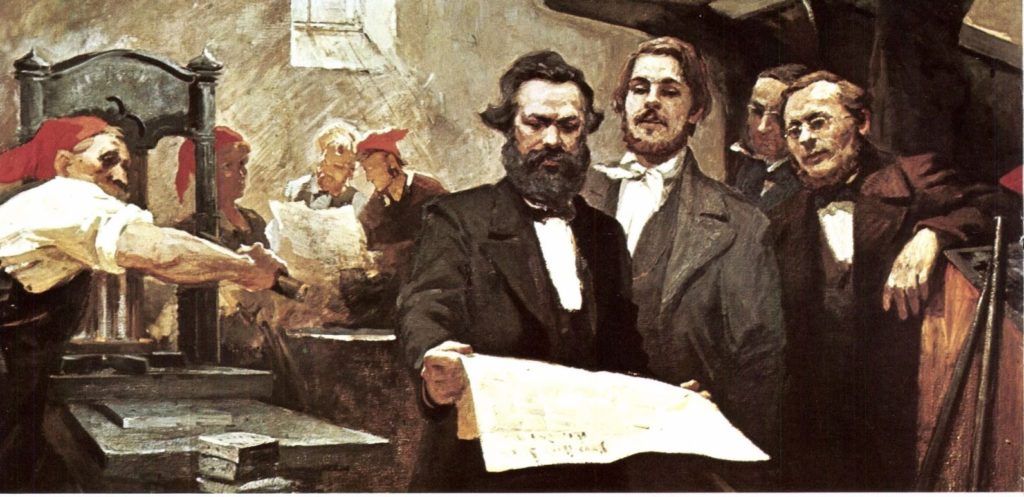
Sundays
2:30 - 4:30 p.m.
HSS Room 69 (map)
All are welcome. No prior knowledge assumed.
Follow us directly afterward to Starbucks in Hodges Library for informal discussion or to ask questions about our project. Look for copies of our monthly journal, the Platypus Review, on the table.
Direct inquiries to platypusknoxville@gmail.com.
I. What is the Left? – What is Marxism?
• required / + recommended reading
Marx and Engels readings pp. from Robert C. Tucker, ed., Marx-Engels Reader (Norton 2nd ed., 1978)
Week A. Radical bourgeois philosophy I. Rousseau: Crossroads of society | Sep. 4, 2019
Whoever dares undertake to establish a people’s institutions must feel himself capable of changing, as it were, human nature, of transforming each individual, who by himself is a complete and solitary whole, into a part of a larger whole, from which, in a sense, the individual receives his life and his being, of substituting a limited and mental existence for the physical and independent existence. He has to take from man his own powers, and give him in exchange alien powers which he cannot employ without the help of other men.
— Jean-Jacques Rousseau, On the Social Contract (1762)
• Max Horkheimer, "The little man and the philosophy of freedom" (1926–31)
• epigraphs on modern history and freedom by James Miller (on Jean-Jacques Rousseau), Louis Menand (on Edmund Wilson), Karl Marx, on "becoming" (from the Grundrisse, 1857–58), and Peter Preuss (on Nietzsche)
+ Rainer Maria Rilke, "Archaic Torso of Apollo" (1908)
+ Robert Pippin, "On Critical Theory" (2004)
+ Being and becoming (freedom in transformation) chart of terms
• Jean-Jacques Rousseau, Discourse on the Origin of Inequality (1754) PDFs of preferred translation (5 parts): [1] [2] [3] [4] [5]
• Rousseau, selection from On the Social Contract (1762)
Week B. Radical bourgeois philosophy II. Adam Smith: On the wealth of nations (part 1) | Sep. 11, 2019
• Adam Smith, selections from The Wealth of Nations
Volume I [PDF]
Introduction and Plan of the Work
Book I: Of the Causes of Improvement…
I.1. Of the Division of Labor
I.2. Of the Principle which gives Occasion to the Division of Labour
I.3. That the Division of Labour is Limited by the Extent of the Market
I.4. Of the Origin and Use of Money
I.6. Of the Component Parts of the Price of Commodities
I.7. Of the Natural and Market Price of Commodities
I.8. Of the Wages of Labour
I.9. Of the Profits of Stock
Book III: Of the different Progress of Opulence in different Nations
III.1. Of the Natural Progress of Opulence
III.2. Of the Discouragement of Agriculture in the Ancient State of Europe after the Fall of the Roman Empire
III.3. Of the Rise and Progress of Cities and Towns, after the Fall of the Roman Empire
III.4. How the Commerce of the Towns Contributed to the Improvement of the Country
Week C. Radical bourgeois philosophy III. Adam Smith: On the wealth of nations (part 2) | Sep. 18, 2019
• Smith, selections from The Wealth of Nations
Volume II [PDF]
IV.7. Of Colonies
Book V: Of the Revenue of the Sovereign or Commonwealth
V.1. Of the Expences of the Sovereign or Commonwealth
Week D. Radical bourgeois philosophy IV. What is the Third Estate? | Sep. 25, 2019
• Abbé Emmanuel Joseph Sieyès, What is the Third Estate? (1789)
+ Bernard Mandeville, The Fable of the Bees (1732)
Week E. Radical bourgeois philosophy V. Kant and Constant: Bourgeois society | Oct. 2, 2019
• Immanuel Kant, "Idea for a universal history from a cosmopolitan point of view" and "What is Enlightenment?" (1784)
+ Being and becoming (freedom in transformation) chart of terms
• Benjamin Constant, "The liberty of the ancients compared with that of the moderns" (1819)
+ Jean-Jacques Rousseau, Discourse on the origin of inequality (1754)
+ Rousseau, selection from On the social contract (1762)
Week F. Radical bourgeois philosophy VI. Hegel: Freedom in history | Oct. 9, 2019
• G.W.F. Hegel, Introduction to the Philosophy of History (1831) [HTML] [PDF pp. 14-128] [Audiobook]
+ Being and becoming (freedom in transformation) chart of terms
Week 1. What is the Left? I. Capital in history | Oct. 16, 2019
Whoever dares undertake to establish a people’s institutions must feel himself capable of changing, as it were, human nature, of transforming each individual, who by himself is a complete and solitary whole, into a part of a larger whole, from which, in a sense, the individual receives his life and his being, of substituting a limited and mental existence for the physical and independent existence. He has to take from man his own powers, and give him in exchange alien powers which he cannot employ without the help of other men.
— Jean-Jacques Rousseau, On the Social Contract (1762)
• Max Horkheimer, "The little man and the philosophy of freedom" (1926–31)
• epigraphs on modern history and freedom by James Miller (on Jean-Jacques Rousseau), Louis Menand (on Edmund Wilson), Karl Marx, on "becoming" (from the Grundrisse, 1857–58), and Peter Preuss (on Nietzsche)
+ Rainer Maria Rilke, "Archaic Torso of Apollo" (1908)
+ Robert Pippin, "On Critical Theory" (2004)
+ Being and becoming (freedom in transformation) chart of terms
• Chris Cutrone, "Capital in history" (2008)
+ Capital in history timeline and chart of terms
+ video of Communist University 2011 London presentation
+ Capitalist contradiction chart of terms
• Cutrone, "The Marxist hypothesis" (2010)
• Cutrone, “Class consciousness (from a Marxist persective) today”
+ G.M. Tamas, "Telling the truth about class" [HTML] (2007)
Week 2. What is the Left? II. Utopia and critique | Oct. 23, 2019
• Max Horkheimer, selections from Dämmerung (1926–31)
• Adorno, “Imaginative Excesses” (1944–47)
• Leszek Kolakowski, “The concept of the Left” (1968)
• Marx, To make the world philosophical (from Marx's dissertation, 1839–41), pp. 9–11
• Marx, For the ruthless criticism of everything existing (letter to Arnold Ruge, September 1843), pp. 12–15
+ Capitalist contradiction chart of terms
+ Being and becoming (freedom in transformation) / immanent dialectical critique chart of terms
Week 3. What is Marxism? I. Socialism | Nov. 10, 2019
• Marx, selections from Economic and philosophic manuscripts (1844), pp. 70–101
+ Commodity form chart of terms
+ Being and becoming (freedom in transformation) / immanent dialectical critique chart of terms
+ Capitalist contradiction chart of terms
• Marx and Friedrich Engels, selections from the Manifesto of the Communist Party (1848), pp. 469-500
• Marx, Address to the Central Committee of the Communist League (1850), pp. 501–511
Week 4. What is Marxism? II. Revolution in 1848 | Nov. 17, 2019
• Marx, The coming upheaval (from The Poverty of Philosophy, 1847) and Class struggle and mode of production (letter to Weydemeyer, 1852), pp. 218-220
• Engels, The tactics of social democracy (Engels's 1895 introduction to Marx, The Class Struggles in France), pp. 556–573
• Marx, selections from The Class Struggles in France 1848–50 (1850), pp. 586–593
• Marx, selections from The 18th Brumaire of Louis Bonaparte (1852), pp. 594–617
Week 5. What is Marxism? III. Bonapartism | Nov. 24, 2019
+ Karl Korsch, "The Marxism of the First International" (1924)
• Marx, Inaugural address to the First International (1864), pp. 512–519
• Marx, selections from The Civil War in France (1871, including Engels's 1891 Introduction), pp. 618–652
+ Korsch, Introduction to Marx, Critique of the Gotha Programme (1922)
• Marx, Critique of the Gotha Programme, pp. 525–541
• Marx, Programme of the Parti Ouvrier (1880)
Week 6. What is Marxism? IV. Critique of political economy | Dec. 1, 2019
The fetish character of the commodity is not a fact of consciousness; rather it is dialectical, in the eminent sense that it produces consciousness. . . . [P]erfection of the commodity character in a Hegelian self-consciousness inaugurates the explosion of its phantasmagoria.
— Theodor W. Adorno, letter to Walter Benjamin, August 2, 1935
+ Commodity form chart of terms
+ Capitalist contradiction chart of terms
+ Organic composition of capital chart of terms
• Marx, selections from the Grundrisse (1857–61), pp. 222–226, 236–244, 247–250, 276–293 ME Reader pp. 276-281
• Marx, Capital Vol. I, Ch. 1 Sec. 4 "The fetishism of commodities" (1867), pp. 319–329
+ Being and becoming (freedom in transformation) / immanent dialectical critique chart of terms
Week 7. Reification | Dec. 8, 2019
• Georg Lukács, “The phenomenon of reification” (Part I of “Reification and the consciousness of the proletariat,” History and Class Consciousness, 1923)
+ Commodity form chart of terms
+ Reification chart of terms
+ Capitalist contradiction chart of terms
+ Organic composition of capital chart of terms
+ Being and becoming (freedom in transformation) / immanent dialectical critique chart of terms
Winter break readings
+ Richard Appignanesi and Oscar Zarate / A&Z, Introducing Lenin and the Russian Revolution / Lenin for Beginners (1977)
+ Sebastian Haffner, Failure of a Revolution: Germany 1918–19 (1968)
+ Edmund Wilson, To the Finland Station: A Study in the Writing and Acting of History (1940), Part II. Ch. (1–4,) 5–10, 12–16; Part III. Ch. 1–6
+ Tariq Ali and Phil Evans, Introducing Trotsky and Marxism / Trotsky for Beginners (1980)
+ James Joll, The Second International 1889–1914 (1966)
Week 8. What is Marxism? V. Reification | Dec. 15, 2019
• Georg Lukács, “The phenomenon of reification” (Part I of “Reification and the consciousness of the proletariat,” History and Class Consciousness, 1923)
+ Commodity form chart of terms
+ Reification chart of terms
+ Capitalist contradiction chart of terms
+ Organic composition of capital chart of terms
+ Being and becoming (freedom in transformation) / immanent dialectical critique chart of terms
Week 9. What is Marxism? VI. Class consciousness | Jan. 12, 2020
• Lukács, “Class Consciousness” (1920), Original Preface (1922), “What is Orthodox Marxism?” (1919), History and Class Consciousness (1923)
+ Capitalist contradiction chart of terms
+ Reification chart of terms
+ Being and becoming (freedom in transformation) / immanent dialectical critique chart of terms
+ Marx, Preface to the First German Edition and Afterword to the Second German Edition (1873) of Capital (1867), pp. 294–298, 299–302
Week 10. What is Marxism? VII. Ends of philosophy | Jan. 19, 2020
• Korsch, “Marxism and philosophy” (1923)
+ Capitalist contradiction chart of terms
+ Being and becoming (freedom in transformation) / immanent dialectical critique chart of terms
+ Marx, To make the world philosophical (from Marx's dissertation, 1839–41), pp. 9–11
+ Marx, For the ruthless criticism of everything existing (letter to Arnold Ruge, September 1843), pp. 12–15
+ Marx, "Theses on Feuerbach" (1845), pp. 143–145
Winter break readings
+ Richard Appignanesi and Oscar Zarate / A&Z, Introducing Lenin and the Russian Revolution / Lenin for Beginners (1977)
+ Sebastian Haffner, Failure of a Revolution: Germany 1918–19 (1968)
+ Edmund Wilson, To the Finland Station: A Study in the Writing and Acting of History (1940), Part II. Ch. (1–4,) 5–10, 12–16; Part III. Ch. 1–6
+ Tariq Ali and Phil Evans, Introducing Trotsky and Marxism / Trotsky for Beginners (1980)
+ James Joll, The Second International 1889–1914 (1966)
Winter–Spring 2020
II. Introduction to revolutionary Marxism
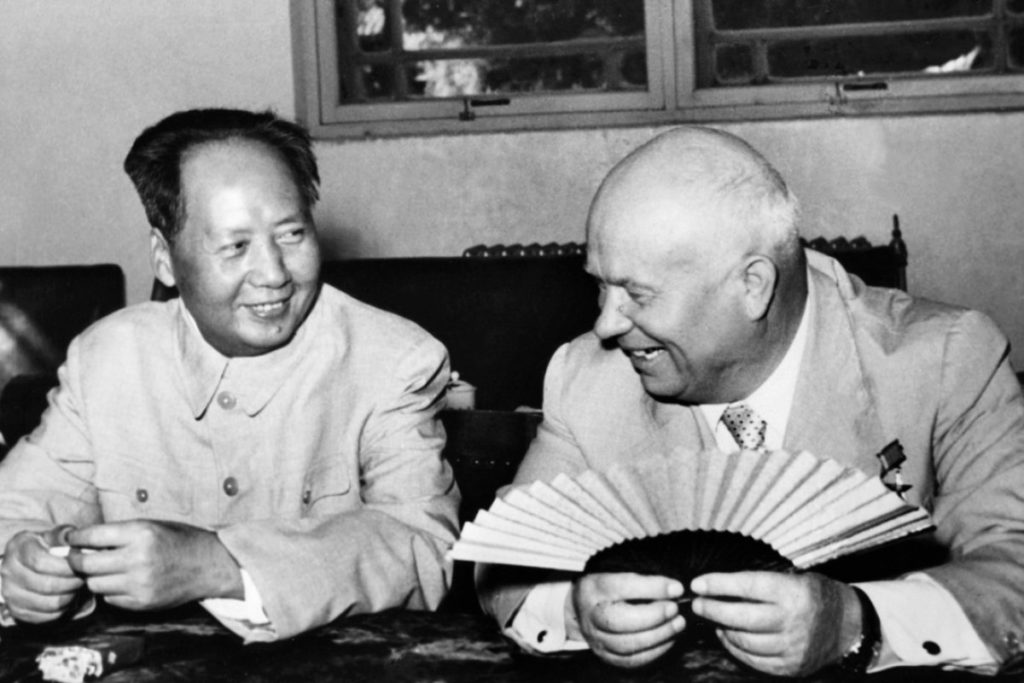
Meets Wednesdays, 3:00 p.m
HSS Building Room 103A
1115 Volunteer Blvd.
Open to the public / new attendants welcome
• required / + recommended reading
Week 1. June 12, 2019
• Leon Trotsky, The Revolution Betrayed: What is the Soviet Union and Where is it Going? (1936)
+ Trotsky, "Stalinism and Bolshevism" (1937)
+ Trotsky, letter to James P. Cannon of September 12, 1939
+ Trotsky, The USSR in War (1939)
Week 2. June 19, 2019
• Herbert Marcuse, 33 theses (1947)
• Shane Mage, "'Pure democracy' or political revolution in Eastern Europe?" excerpts from The Hungarian Revolution (1957) republished in Spartacist 30 (Autumn 1980) pp. 10-16
• Michael Harrington, "Marxism and democracy" (1981)
Week 3. June 26, 2019
(Recommended resource: Isaac Deutscher internet archive)
• Isaac Deutscher, "Two Revolutions" (1950)
• Deutscher, "Stalin, Mao and Korea" (1950)
• Deutscher, "Khrushchev on Stalin" (1956)
Week 4. July 3, 2019
• Deutscher, "Three trends in Communism" (1959)
• Deutscher, "From Stalin to Adam Smith" (1959)
• Deutscher, "The tragedy of the Polish Communist Party" (1958)
• Deutscher, 3 articles on Eastern Europe (letter to Gomulka, dialogue with Brandler, conversation with Trygve Lie)
Week 5. July 10, 2019
• Deutscher, "Three currents in Communism" (1964)
• Deutscher, "Maoism — its origin and outlook" (1964)
• Deutscher, "Vietnam in perspective" (1965)
• Deutscher, "The meaning of the 'Cultural Revolution'" and interview on the Cultural Revolution (1966)
Week 6. July 19, 2019
• Deutscher, The Unfinished Revolution: Russia 1917-67 (1967)
Week 7. July 24, 2019
• Deutscher, "Marxism in our time" (1965)
• Deutscher, "Marxism and the New Left" (1967)
II. Introduction to revolutionary Marxism
Knoxville: Thursdays 6:30–9PM EST
University of Tennessee
Humanities and Social Sciences Building
1115 Volunteer Blvd. room 103A
Campus parking free after 6 PM
Suggested parking by Hodges Library or Haslam Music Center
• required / + recommended reading
Marx and Engels readings pp. from Robert C. Tucker, ed., Marx-Engels Reader (Norton 2nd ed., 1978)
Searchable PDF e-Book of all readings can be downloaded here
Recommended winter break preliminary readings:
+ Leszek Kolakowski, “The concept of the Left” (1968)
+ Richard Appignanesi and Oscar Zarate / A&Z, Introducing Lenin and the Russian Revolution / Lenin for Beginners (1977)
+ Sebastian Haffner, Failure of a Revolution: Germany 1918–19 (1968)
+ Tariq Ali and Phil Evans, Introducing Trotsky and Marxism / Trotsky for Beginners (1980)
+ James Joll, The Second International 1889–1914 (1966)
+ Edmund Wilson, To the Finland Station: A Study in the Writing and Acting of History (1940), Part II. Ch. (1–4,) 5–10, 12–16; Part III. Ch. 1–6
Film screenings
Sunday, January 21 (8:00 PM)
• Rosa Luxemburg (1986)
Meet in the Lindsay Young Auditorium on the 1st floor of Hodges Library.
Sunday, January 29 (8:00 PM)
• The Young Karl Marx (2017)
Meet in the Commons Practice Presentation Room 220-E on the 2nd floor of Hodges Library.
Suggested home viewing (click for stream/download)
• 37 Days (2014) [Episode 1] [Episode 2] [Episode 3]
• Fall of Eagles (1974) episodes: "Absolute Beginners", "The Secret War", and "End Game"
• Oliver Stone's Untold History of the United States (2012) Episodes A (1900-20) and B (1920-40)
• Reds (1981) [download currently unavailable]
February
Winter 2018
I. What is the "Left?" -- What is "Marxism?"
Week 11. What is Marxism? VI. Class consciousness | Jan. 18, 2018
• Lukács, Original Preface (1922), “What is Orthodox Marxism?” (1919), “Class Consciousness” (1920), History and Class Consciousness (1923)
+ Marx, Preface to the First German Edition and Afterword to the Second German Edition (1873) of Capital (1867), pp. 294–298, 299–302
Week 12. What is Marxism? VII. Ends of philosophy | Jan. 25, 2018
• Korsch, “Marxism and philosophy” (1923)
+ Being and becoming (freedom in transformation) / immanent dialectical critique chart of terms
+ Marx, To make the world philosophical (from Marx's dissertation, 1839–41), pp. 9–11
+ Marx, For the ruthless criticism of everything existing (letter to Arnold Ruge, September 1843), pp. 12–15
+ Marx, "Theses on Feuerbach" (1845), pp. 143–145
Winter–Spring 2018
II. Introduction to revolutionary Marxism
Week 13. Revolutionary leadership | Feb. 1, 2018
• Rosa Luxemburg, “The Crisis of German Social Democracy” Part 1 (1915)
• J. P. Nettl, “The German Social Democratic Party 1890–1914 as a Political Model” (1965)
• Cliff Slaughter, “What is Revolutionary Leadership?” (1960)
Week 14. Reform or revolution? | Feb. 8, 2018
• Luxemburg, Reform or Revolution? (1900/08)
+ Eugene Debs, "Competition versus Cooperation" (1900)
Week 15. Lenin and the vanguard party | Feb. 15, 2018
• Spartacist League, Lenin and the Vanguard Party (1978)
Week 16. What is to be done? | Feb. 22, 2018
• V. I. Lenin, What is to be Done? (1902)
+ Richard Appignanesi and Oscar Zarate / A&Z, Introducing Lenin and the Russian Revolution / Lenin for Beginners (1977)
Week 17. Mass strike and social democracy | Mar. 1, 2018
• Luxemburg, The Mass Strike, the Political Party and the Trade Unions (1906)
+ Luxemburg, "Blanquism and Social Democracy" (1906)
Week 18. Permanent revolution | Mar. 8, 2018
• Leon Trotsky, Results and Prospects (1906)
+ Tariq Ali and Phil Evans, Introducing Trotsky and Marxism / Trotsky for Beginners (1980)
Week 19. Mar. 15, 2018 (spring break)
Week 20. State and revolution | Mar. 22, 2018
• Lenin, The State and Revolution (1917)
Week 21. Imperialism | Mar. 29, 2018
• Lenin, Imperialism, the Highest Stage of Capitalism (1916)
+ Lenin, Socialism and War Ch. 1 The principles of socialism and the War of 1914–15 (1915)
Week 22. Failure of the revolution | Apr, 2018
• Luxemburg, “What does the Spartacus League Want?” (1918)
• Luxemburg, “On the Spartacus Programme” (1918)
+ Luxemburg, "German Bolshevism" (AKA "The Socialisation of Society") (1918)
+ Luxemburg, “The Russian Tragedy” (1918)
+ Luxemburg, “Order Reigns in Berlin” (1919)
+ Eugene Debs, “The Day of the People” (1919)
+ Sebastian Haffner, Failure of a Revolution: Germany 1918–19 (1968)
Week 23. Apr. 12, 2018 [Platypus international convention]
Week 24. Retreat after revolution | Apr. 19, 2018
• Lenin, “Left-Wing” Communism: An Infantile Disorder (1920)
+ Lenin, "Notes of a Publicist" (1922)
Week 25. Dialectic of reification | Apr. 26, 2018
• Lukács, “The Standpoint of the Proletariat” (Part III of “Reification and the Consciousness of the Proletariat,” 1923). Available in three sections from marxists.org: section 1 section 2 section 3
+ Being and becoming (freedom in transformation) / immanent dialectical critique chart of terms
Week 26. Lessons of October | May 3, 2018
• Trotsky, The Lessons of October (1924) [PDF]
+ Trotsky, "Stalinism and Bolshevism" (1937)
Week 27. Trotskyism | May 10, 2018
+ Trotsky, "To build communist parties and an international anew" (1933)
• Trotsky, The Death Agony of Capitalism and the Tasks of the Fourth International (1938)
+ Trotsky, "Trade unions in the epoch of imperialist decay" (1940)
+ Trotsky, Letter to James Cannon (September 12, 1939)
Week 28. The authoritarian state | May 17, 2018
• Friedrich Pollock, "State Capitalism: Its Possibilities and Limitations" (1941) (note 32 on USSR)
• Max Horkheimer, "The Authoritarian State" (1942)
Week 29. On the concept of history | May 24, 2018
• epigraphs by Louis Menand (on Edmund Wilson) and Peter Preuss (on Nietzsche) on the modern concept of history
+ Charles Baudelaire, from Fusées [Rockets] (1867)
+ Bertolt Brecht, "To posterity" (1939)
+ Walter Benjamin, "To the planetarium" (from One-Way Street, 1928)
+ Benjamin, "Experience and poverty" (1933)
+ Benjamin, Theologico-political fragment (1921/39?)
• Benjamin, "On the Concept of History" (AKA "Theses on the Philosophy of History") (1940) [PDF]
• Benjamin, Paralipomena to "On the Concept of History" (1940)
+ Being and becoming (freedom in transformation) / immanent dialectical critique chart of terms
Week 30. Reflections on Marxism | May 31, 2018
• Theodor Adorno, “Reflections on Class Theory” (1942)
• Adorno, “Imaginative Excesses” (1944–47)
+ Being and becoming (freedom in transformation) / immanent dialectical critique chart of terms
+ Adorno, Dedication, "Bequest", "Warning: Not to be Misused" and "Finale", Minima Moralia (1944–47)
+ Horkheimer and Adorno, "Discussion about Theory and Praxis" (AKA "Towards a New Manifesto?") [Deutsch] (1956)
Week 31. Theory and practice | Jun. 7, 2018
+ Adorno, “On Subject and Object” (1969)
• Adorno, “Marginalia to Theory and Praxis” (1969)
• Adorno, “Resignation” (1969)
+ Being and becoming (freedom in transformation) / immanent dialectical critique chart of terms
+ Adorno, “Late Capitalism or Industrial Society?” (AKA “Is Marx Obsolete?”) (1968)
+ Esther Leslie, Introduction to the 1969 Adorno-Marcuse correspondence (1999)
+ Adorno and Herbert Marcuse, correspondence on the German New Left (1969)
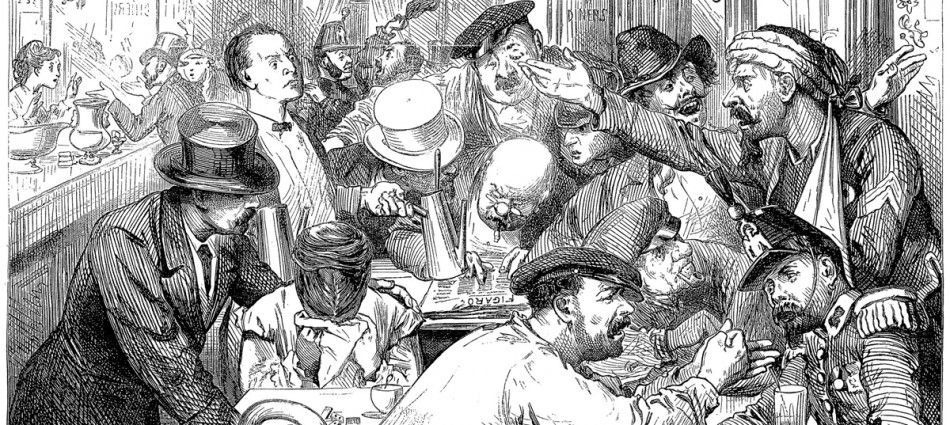
Join us for informal discussions on politics, current events, and the latest issue of the Platypus Review! Open to the public, new attendants encouraged. This is a strictly social event to balance out our reading group on the history of the Left (more info here).
Sundays 4-6 PM
The Golden Roast
825 Melrose Place
Knoxville, TN 37916
Look for a stack of Platypus Reviews on the table to identify us!


